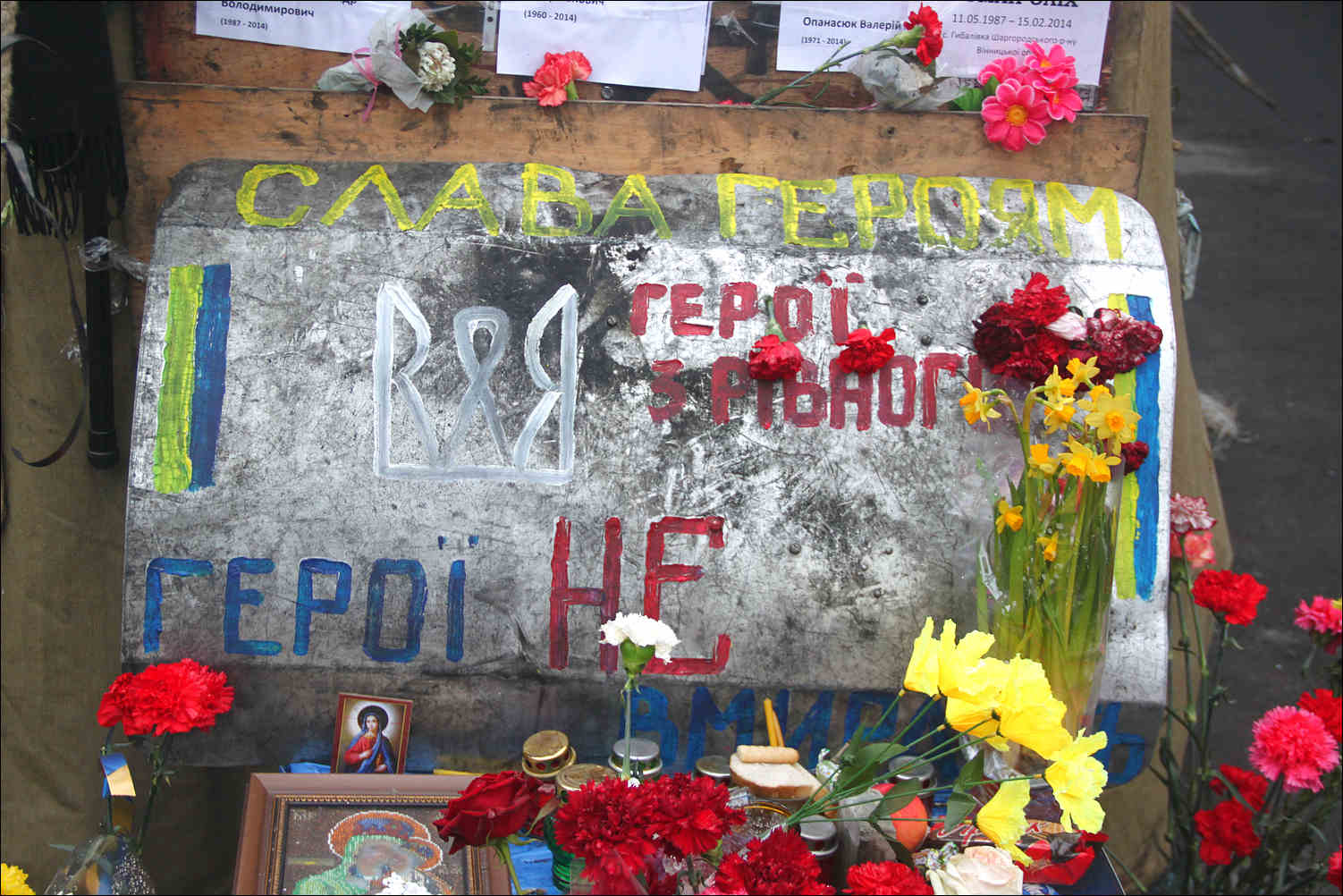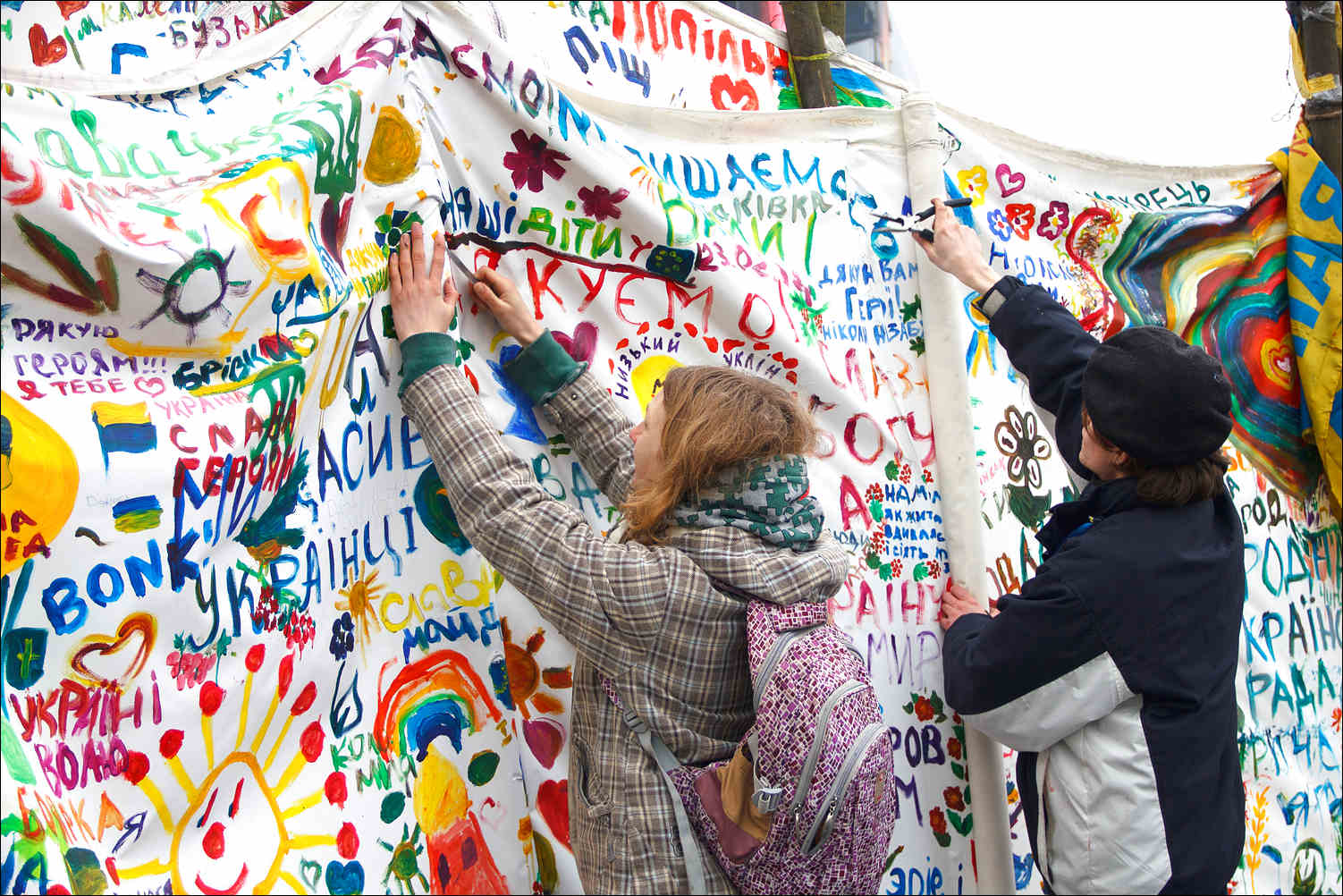Since the brutal invasion of Ukraine by Russia in February 2022, the destruction inflicted by bombs and bullets has been well-documented. From TV news crews to citizen journalists on TikTok, the world has seen the death and damage occurring in nearly real time. It is clear Russian and pro-Russian forces have been committing legions of war crimes – including widespread conflict-related sexual violence. While not always visible, the scars from these attacks can last a lifetime.
Over the past year, our Global Initiative for Justice, Truth & Reconciliation (GIJTR) team and its partners worked with organizations on the ground in Ukraine to investigate and document these crimes. Our goal is to ensure local documenters of human rights violations have the resources, training, and capacity they need to do this critical work themselves in the long run, rather than simply have international organizations swoop in and out temporarily. This is particularly important when it comes to the issue of sexual violence, as survivors are often more comfortable opening up about these traumatic events to members of their own community rather than outsiders.

To start, GIJTR local project partners International Partnership for Human Rights and Truth Hounds conducted twelve field visits to recently occupied regions of Ukraine and other locations near the front lines to interview survivors of conflict-related sexual violence. In preparation, GIJTR also organized specialized training for more than 20 Ukrainian documenters and psychologists in trauma-informed, gender-sensitive, survivor-centered documentation and empathic interview skills to avoid re-traumatizing those sharing their stories.
These interviews revealed haunting instances of sexual violence against females, males, and people of diverse sexual orientation, gender identity, gender expression and sex characteristics (SOGIESC), ranging in age from young children to the elderly. Men and boys have been subjected to sexualized torture – for the men, often while in detention contexts. Women and girls have been raped, many while trying to protect other women or simply survive. The reports show that incidents of conflict-related sexual violence were not isolated events.
The quest for justice is ongoing. Local GIJTR partners in Ukraine will continue to conduct investigations and document atrocities. The evidence obtained will be submitted through regional, national, and international authorities to hold perpetrators accountable for these grave human rights abuses. Our work has uncovered challenges in the justice process, such as the fear of retribution for speaking out, and a lack of updates to survivors who have reported their experiences to law enforcement. With those challenges in mind, we have devised specific, actionable recommendations in a recent policy brief, Strengthening Accountability for Survivors of Conflict-Related Sexual Violence in Ukraine: Findings and Recommendations from the Frontline. This includes outlining legal pathways for accountability, best practices for the documentation of conflict-related sexual violence, and how to coordinate cooporation between documenters, support services, and the Ukrainian government.
We have also created a self-assessment toolkit for civil society organizations, in recognition of the vital role they play in advancing truth, justice, and healing for survivors of conflict-related sexual violence. The toolkit shares best practices from organizations and expert practitioners working on the front lines to support survivors, drawing upon insights gathered from more than 20 in-depth interviews and seven case studies.
This project is a joint effort between GIJTR, and local partners, the International Partnership for Human Rights, Truth Hounds, and Partners in Justice International. We are grateful for their continued partnership in support in advocating for survivors.
About the Global Initiative for Justice, Truth & Reconciliation: GIJTR is a flagship program of the International Coalition of Sites of Conscience, a global network of more than 370 historic sites and museums across 80 countries. As experts in truth-telling, forensic analysis, documenting human rights abuses, victims’ advocacy, and reparative justice, the GIJTR team works alongside communities to amplify the voices of survivors and inspire collective action in countries struggling to confront human rights violations. By addressing past trauma, we change the future.

